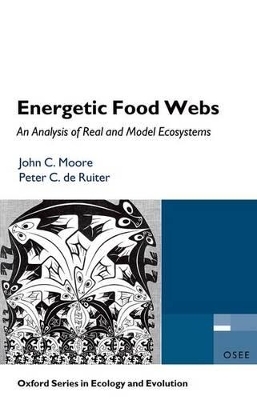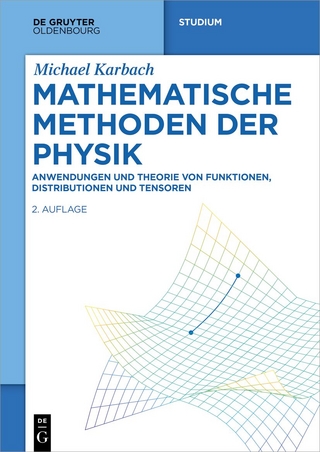
Energetic Food Webs
Oxford University Press (Verlag)
978-0-19-856619-9 (ISBN)
This novel book bridges the gap between the energetic and species approaches to studying food webs, addressing many important topics in ecology. Species, matter, and energy are common features of all ecological systems. Through the lens of complex adaptive systems thinking, the authors explore how the inextricable relationship between species, matter, and energy can explain how systems are structured and how they persist in real and model systems. Food webs are viewed as open and dynamic systems. The central theme of the book is that the basis of ecosystem persistence and stability rests on the interplay between the rates of input of energy into the system from living and dead sources, and the patterns in utilization of energy that result from the trophic interactions among species within the system. To develop this theme, the authors integrate the latest work on community dynamics, ecosystem energetics, and stability. In so doing, they present a unified ecology that dispels the categorization of the field into the separate subdisciplines of population, community, and ecosystem ecology.
Energetic Food Webs is suitable for both graduate level students and professional researchers in the general field of ecology. It will be of particular relevance and use to those working in the specific areas of food webs, species dynamics, material and energy cycling, as well as community and ecosystem ecology.
John Moore studied zoology and ecology at the University of California at Santa Barbara, and received an MS in zoology at Michigan State University and an MS in Statistics at Colorado State University. His PhD focused on trophic interactions and food web analyses in natural and agricultural ecosystems. From 1991-2006 he was a faculty member at the University of Northern Colorado (UNC) and as the director of the UNC Mathematics and Science Teaching Institute (2001-2006). In 2006 he was appointed as director of the Natural Resource Ecology Laboratory at Colorado State University, and in 2010 as founding department head for the new Department of Ecosystem Science and Sustainability within the Warner College of Natural Resources. His research interests are in the fields of soil ecology, ecosystem ecology, mathematical/theoretical ecology, and the application of the theory of complex adaptive systems to teaching and learning. Peter de Ruiter studied Biology and Mathematics at the Utrecht University. His PhD was a theoretical-empirical analysis of predator prey interactions in forest floor layers. Since then he has worked for 10 years at the DLO-Institute for Soil Fertility (Haren, NL), 10 years as chair-holder Environmental Sciences at the Utrecht University and, since 2006, as head of the Wageningen University Centre of Soil Science. In 2008 Peter de Ruiter was appointed as a 'personal professor' in the Wageningen University Biometris Institute that focuses on mathematical approaches in the life sciences. His main research interests are in the field of soil sciences, ecology, and mathematical/theoretical ecology. He is a member of various national and international scientific committees and research councils, including the Dutch Governmental Advisory Committee on Soil Protection.
SECTION I: MODELLING SIMPLE AND MULTISPECIES COMMUNITIES ; SECTION II: THE DYNAMICS AND STABILITY OF SIMPLE AND COMPLEX COMMUNITIES ; SECTION III: DYNAMIC FOOD WEB ARCHITECTURES
| Reihe/Serie | Oxford Series in Ecology and Evolution |
|---|---|
| Zusatzinfo | Numerous illustrations |
| Verlagsort | Oxford |
| Sprache | englisch |
| Maße | 157 x 233 mm |
| Gewicht | 598 g |
| Themenwelt | Mathematik / Informatik ► Mathematik ► Angewandte Mathematik |
| Naturwissenschaften ► Biologie ► Mikrobiologie / Immunologie | |
| Naturwissenschaften ► Biologie ► Ökologie / Naturschutz | |
| Naturwissenschaften ► Geowissenschaften ► Geologie | |
| ISBN-10 | 0-19-856619-0 / 0198566190 |
| ISBN-13 | 978-0-19-856619-9 / 9780198566199 |
| Zustand | Neuware |
| Haben Sie eine Frage zum Produkt? |
aus dem Bereich


